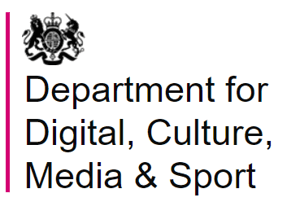 Gambling and betting companies are in the news a lot these days with many pointing the finger at the industry for failing to do enough to protect against problem gaming and fraud.
Gambling and betting companies are in the news a lot these days with many pointing the finger at the industry for failing to do enough to protect against problem gaming and fraud.
This is a fair point, gambling in the UK is the most heavily regulated in the world but more could still be done, with people highlighting the financial services industry as a sector that has already implemented far greater protections for customers.
Unfortunately a lot of the procedures that are already in place that oblige companies to verify the source of funds and detect gambling addiction are self-regulated, creating an obvious conflict of interest. The financial sector has been more accountable since the 2008 recession has been forced to implement measures that are independently regulated, is it time that betting firms should now have a similar system?
Technology to detect problem gambling and fraud is available but it is also expensive and up to now there has been little onus for brands to spend this type of cash. The time is coming however when firms will need to have better checks in place to protect the future of the market for people who enjoy betting sensibly.
Can Computers Stop Fraud & Problem Gambling
 When posed the question: “Can computers think as humans do?” in hit movie ‘Imitation Game’, actor Benedict Cumberbatch’s character, Alan Turing’s response was unsurprisingly considered.
When posed the question: “Can computers think as humans do?” in hit movie ‘Imitation Game’, actor Benedict Cumberbatch’s character, Alan Turing’s response was unsurprisingly considered.
Although there is still a considerable way to go before computers can actually think independently, progress has been made in the decades since which has enabled several industries to make major steps forward.
In the film, Turing’s character touched on the fact that computers cannot think as humans do and since then research has suggested that part of the reason for this is that, in simple terms, a computer has no emotions.
Many human thoughts are often the result of emotional state or triggers, environment or circumstance and also (which is where there is some crossover), logic.
As such, it was quickly ascertained that a computer initially is only as clever and sophisticated as the human who programmed it (in other words, gave it a set of outcome-orientated instructions, based on cause and effect).
Over the decades, much research has been made into understanding exactly how computers can be improved and it is easy to underestimate the level of thinking and expertise that goes into this development. We even take it for granted.
Though, for those who really pay attention and have an inquisitive mind, there is much to contemplate. There is no doubt that we are on the verge of a technological breakthrough and it is fascinating.
Algorithms
 The emergence of “algorithms” was a bit of a game-changer. According to the Cambridge Dictionary, an ‘algorithm’ is: “a set of mathematical instructions or rules that, especially if given to a computer, will help to calculate an answer to a problem.”
The emergence of “algorithms” was a bit of a game-changer. According to the Cambridge Dictionary, an ‘algorithm’ is: “a set of mathematical instructions or rules that, especially if given to a computer, will help to calculate an answer to a problem.”
At this stage computers can now, thanks to the development of advanced Machine Learning code, from one angle, operate in a logical sales perspective.
It means they can independently do their market research (data collection based on recognising historical behaviour and patterns), understand how a person’s information (interests and hobbies on social media pages) can be used to identify and then present solutions (products/services) that people may want based on their behaviour.
Even as only as far back as a decade ago, this is a major step forward in terms of how far technology has come, but its uses in specific industries is where there has been particular demand for it.
Financial Services
 It is perhaps unsurprising that the financial services sector are the earliest adopters of any technological advancement. Investment banks, hedge funds, mutual funds and trading firms (many of which are backed by governments) need to be right at the cutting edge of such technology in order to make as big a profit as efficiently as possible.
It is perhaps unsurprising that the financial services sector are the earliest adopters of any technological advancement. Investment banks, hedge funds, mutual funds and trading firms (many of which are backed by governments) need to be right at the cutting edge of such technology in order to make as big a profit as efficiently as possible.
Having technology that can not only analyse past stock (company) performance, but also predict which way the market will go over a certain period of time is valuable information to a financial trader (often with millions riding on one potential trade).
And then there is the software which enables the processing of such a trade. With so many institutions globally competing against each other to be first and make the biggest profit, the software that they have in place to action this is critical.
It literally comes down to milliseconds and as such, a hedge fund now is only as good as its quantitative developers or low latency, high frequency software developers, who are able to code the software to process trades quicker than rival firms in order to maximise profits.
When thought about, it is logical to understand why this industry simply needs to be right at the front of the queue for this technology. It essentially contributes directly to a nation’s economy; especially relating to bond trading.
Eventual Adoption by the Gaming Industry
 When the gaming industry went online at the beginning of the new millennium, it made a promising start, especially where the technological shift was concerned. There appeared to be a well organised structure, and while the versions today are much improved, at the time it was still a considerable feat.
When the gaming industry went online at the beginning of the new millennium, it made a promising start, especially where the technological shift was concerned. There appeared to be a well organised structure, and while the versions today are much improved, at the time it was still a considerable feat.
For a while at least, it looked as though, in terms of future developments, companies would continue to operate at a high level, based on the clearly advanced thinking that was being applied to how sites worked.
Online games and slots were the result of hours of sophisticated coding, when considering all of the elements that would have needed to be applied. Programming them to know when to payout, understand an online customer’s gambling patterns, when to unlock bonuses; this was the result of highly intelligent software development.
But that is not all. When it comes to an online gaming site, there are so many different factors in play, all of which require the work of these algorithms. They are essentially functions that are similar to many other websites in other industries that we use on a daily basis, such as online shopping (e-commerce industry), online dating or the online travel industry.
Such functions include anything as simple as registering user details, customer service options such as live chat capability (some which are automated thanks to Machine Learning) and payment processing.
Measures Stop Short

However, with regards to the online gaming industry, surprisingly, technological advancement stopped just short in its progression a number of years ago and it is perhaps strange that it is only just making more improvements.
Suspicious gambling behaviour is something that gambling firms are constantly on the lookout for and have over the years adopted a number of ways to deal with this.
Some companies actually have departments which analyse a customer’s gambling activity to determine whether they should be paid out and freeze their accounts while the matter is investigated further.
There have been cases where customers have used software which they have developed to predict certain slot’s payouts so that they know when to play and how much. The amount of energy, time and money that firms put into combating this behaviour quite often distracts their attention from the bigger issues.
Fraud Prevention and Problem Gambling
 Much of the suspicious gambling activity that occurs in the gambling industry is related to fraud, which in some cases, is caused by problem gamblers, or addicts who will go to what are often shocking extremes in order to get their hands on funds that then enables them to gamble.
Much of the suspicious gambling activity that occurs in the gambling industry is related to fraud, which in some cases, is caused by problem gamblers, or addicts who will go to what are often shocking extremes in order to get their hands on funds that then enables them to gamble.
The UK is the largest online gambling market in the world and with such mild regulation when it comes to advertising, it is hardly surprising that it is also home to some of the worst (and largest amount by numbers) of gambling addicts.
According to Panorama, there are an estimated 430,000 people in the UK who are addicted to gambling, with the vast majority using online sites as convenient platforms to facilitate their habit.
With hundreds of online gaming sites, it has never been easier to gamble and often, the very serious addicts will have multiple accounts across a wide range of different online casinos.
The Benefits and Dangers of VIP Schemes
 However, there are also those who stay loyal to just one. This is due to the obscene amounts of money (usually 10s to 100s of thousands) that they spend (lose) with their preferred brand.
However, there are also those who stay loyal to just one. This is due to the obscene amounts of money (usually 10s to 100s of thousands) that they spend (lose) with their preferred brand.
It is this kind of behaviour which prompts gambling companies to give these gamblers what they call VIP (or high roller) status. This means that they are entitled to certain privileges which other members don’t enjoy.
From continual weekly free bonuses, access to exclusive tournaments and invites to prestigious events as corporate guests where they are ‘looked after’, these customers are usually essential to a betting firm or online casino’s balance sheet every year.
Dedicated VIP managers recognise that they can continue to keep enabling gambling habits by awarding players with considerable free bonuses (sometimes as much as a £1000) when they have gone through a losing streak.
While VIP managers perhaps frame themselves as ‘friends’, they have just one job which is to keep their gamblers depositing funds with their online casino. Even at corporate hospitality events, this is also the case.
It is this strategy which not only restores their confidence, but also can trigger them to deposit again and so the cycle repeats itself, whereby the gambler once again begins losing their own funds.
Fraudulent Funds
 While most of the time, a gambling firm’s customer’s funds come from a legitimate source, there are occasionally instances where they have been obtained illegally or fraudulently, the most common being stealing from family members or close friends.
While most of the time, a gambling firm’s customer’s funds come from a legitimate source, there are occasionally instances where they have been obtained illegally or fraudulently, the most common being stealing from family members or close friends.
Though, sometimes this can be gamblers who have access to large amounts of funds on a daily basis such as through their jobs perhaps in a sales or account management (e.g. bank manager, solicitor) capacity where it is easy (too tempting) for a gambling addict to use on a gambling site.
This behaviour does in fact, occur and as such, it is a major problem for gambling companies to identify, with some indeed having members of staff who manually sift through historical transactions to determine whether payouts for winnings are legally warranted.
Problem Gambling
 For a number of years, problem gambling – especially via credit cards has reportedly been on the radar of the UKGC (UK Gambling Commission) who have carefully monitored and investigated problems and instances in order to come up with a way in which this can be combated.
For a number of years, problem gambling – especially via credit cards has reportedly been on the radar of the UKGC (UK Gambling Commission) who have carefully monitored and investigated problems and instances in order to come up with a way in which this can be combated.
An investigation into what can be done to alleviate problem gambling abuses of credit is likely to result in the UKGC finding a middle ground solution which ranges from doing nothing at one end of the scale, to the banning of gambling online with plastic (credit cards) completely.
This could well be in the form of a framework which works to prevent abusers of credit from reckless activity such as either ‘borrowing’ or obtaining funds fraudulently to use on gambling sites.
The UKGC recently released a statement that outlined its intent and what its plans are in regards to combatting this behaviour, which read: “..the public and all other stakeholders will be consulted on other options, including restricting the use of credit cards. The Commission will then take the most appropriate course of action in view of any evidence obtained by this consultation, alongside data already submitted.”
Gambling Commission’s Executive Director, Paul Hope also spoke on the issue, and pondered: “Gambling with borrowed money is known to be a risk factor for consumers, so we think there is a need for action. This consultation will help us decide what that action should be.”
Prevention Measures Gambling Firms Are Investigating
 Such behaviour in relation to problem gambling has led to gambling companies now beginning to invest in machine learning technology in order to be able to better recognise and identify activity that appears to be fraudulent.
Such behaviour in relation to problem gambling has led to gambling companies now beginning to invest in machine learning technology in order to be able to better recognise and identify activity that appears to be fraudulent.
However, the power of this technology can also be used to target and identify other problem gamblers, based on social profiling. What is more likely to be the case is that, they use this technology to their own advantage, so that they can better and more quickly find players who are using suspicious gambling behaviour to increase their chances of higher payouts (another kind of fraud).
This will then negate the need for manpower to do this manually as algorithms will be coded in order to flag any activity that appears to be too convenient or erratic compared to what is considered to be the ‘norm’.
While the Gambling Commission has insisted on gambling firms applying the KYC (Know Your Customer) policy, which requires customers to enter more detailed information about themselves so that firms can keep a stronger grip on activity, there are still customers who slip through the net.
Systemic Failings Resulting In Fines
 So much so that there have been systemic failings even by big firms over the last few years which has resulted in a number of customers being harmed.
So much so that there have been systemic failings even by big firms over the last few years which has resulted in a number of customers being harmed.
Just recently, the now GVC-owned Ladbrokes Coral was dealt one of the largest fines ever given by the Gambling Commission totalling £5.9 million. This was issued in response to the many years of problem gambling, where addicts lost hundreds of thousands of pounds.
The settlement was divided into two with GVC having to pay £4.8m towards responsible gambling causes, while £1.1m was given back to those “affected parties”, more than likely victims of fraudulent activity.
It was even heard that in one case, Ladbrokes had found “significant concerns” about a customer, though still let them carry on placing considerable bets.
Speaking to the Guardian, GVC Chief Executive, Kenny Alexander said that the company had found what is called “historic compliance failures”, following its acquisition of Ladbrokes Coral for £3.2 billion in 2018.
Alexander said: “These historical failings were unacceptable and since the acquisition I have overseen a systematic review of the enlarged group’s player protection procedures and the individuals responsible for these problems have exited the business.”
Government View
 Meanwhile, the government is also keen to crack down on what is viewed as irresponsible behaviour by some gambling firms towards vulnerable customers.
Meanwhile, the government is also keen to crack down on what is viewed as irresponsible behaviour by some gambling firms towards vulnerable customers.
This is wholly supported by Labour MP Carolyn Harris who heads a cross party group on problem gambling.
Speaking about the Ladbrokes Coral case, she was particularly resolute in her opinion: “I believe that the industry does not act in a reasonable manner in how they deal with problem gambling or excessive gambling.
“Every day I hear from individuals and families whose lives have been blighted by the industry’s quest for profit and its disregard for customers. Although this is a substantial fine, to Ladbrokes Coral it’s loose change and I doubt they will learn any lessons.”
What Does the Future Hold?

This is the million pound question and it would perhaps be ironic to suggest that bookmakers will offer a market as to whether they will be made to tighten up their operating processes.
However, where the Gambling Commission may have some luck is by reviewing the VIP processes that many firms currently have in place and certainly making them less aggressive.
It is no different to the (heavily regulated) financial services industry which, since the global financial crisis has been made to crack down on its procedures.
Brokers can no longer employ ‘Wolf of Wall Street’ style sales processes to force stocks on unsuspecting or easily swayed customers. It is not too far a stretch of the imagination to picture similar scenarios with VIP managers of online casinos.
There are however, online casinos and bookmakers which do adhere to Responsible Gambling measures and strict measures in place to thoroughly investigate their most valuable customers.
Some firms even suspend accounts at the first sign of any dubious activity and as such, do function within the bounds of conventional ethics. It is more than likely to be these companies who, moving forward, invest in and adopt sophisticated technology in order to more quickly distinguish a gambler who needs help.
The trade off though, is the inevitable expense. Such expertise is costly; machine learning contractors are some of the highest paid in the world, with the best literally able to write their own pay cheque and dictate their day rate with an average amount being in excess of £2000 per day.
Whatever happens in the industry moving forward, there is now at least, more awareness about problem gambling and gambling fraud than ever before and what happened with GVC should act as a warning to other firms who are also operating in such a manner. At the time, they (computers) were aptly named “Turing Machines”, first used to combat Nazism that threatened reign of terror. It is a sad sign of how far we have come that they have their own dictatorial effect on the vulnerable.